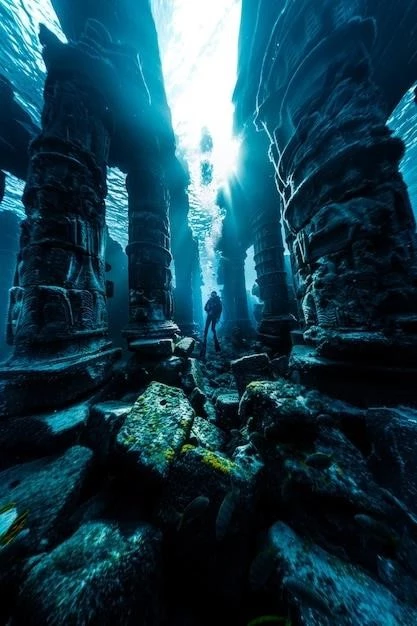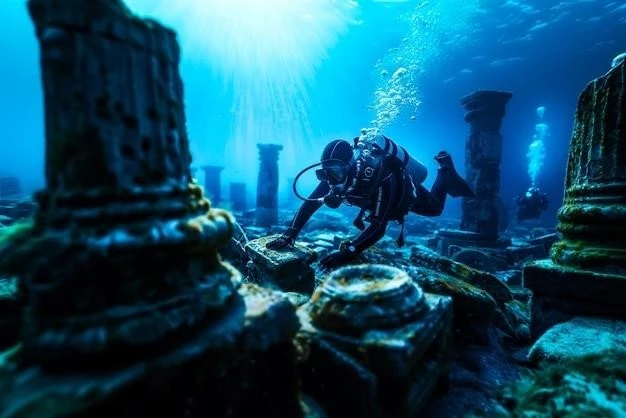The allure of the unknown‚ the mystery of the deep‚ and the persistent human desire to uncover hidden histories have fueled an enduring fascination with the possibility of underwater cities and civilizations. This quest has captivated imaginations for centuries‚ drawing inspiration from ancient myths‚ maritime folklore‚ and the tantalizing glimpses of submerged structures discovered across the globe.
The Origins of the Myth: From Atlantis to Mu
The concept of lost underwater cities finds its roots in ancient mythology. One of the most enduring legends is that of Atlantis‚ a highly advanced civilization described by the Greek philosopher Plato in his dialogues “Timaeus” and “Critias.” According to Plato‚ Atlantis was a powerful maritime empire that sank beneath the waves after a catastrophic earthquake or volcanic eruption. While Plato’s account is widely considered a philosophical allegory‚ it has sparked countless theories and expeditions aimed at uncovering its physical remains.
Another prominent myth is that of Mu‚ a vast continent said to have existed in the Pacific Ocean. This legend‚ popularized in the late 19th century‚ suggests that Mu was a highly developed civilization that was destroyed by a cataclysmic event‚ sinking beneath the ocean. Similar to Atlantis‚ Mu has captured the imagination of explorers and researchers‚ with numerous attempts made to locate its remnants.
Scientific Evidence and Archaeological Discoveries
While the existence of Atlantis and Mu remains unproven‚ scientific discoveries have revealed evidence of submerged structures and ancient settlements that offer tantalizing glimpses into the past. In the Mediterranean Sea‚ underwater archaeologists have unearthed the remains of ancient Greek and Roman cities‚ including the submerged port of Baiae‚ a once-thriving Roman resort town‚ and the sunken city of Pavlopetri off the coast of Greece‚ dating back to the Bronze Age.
In the Caribbean Sea‚ underwater surveys have revealed the submerged ruins of ancient Mayan settlements‚ suggesting that these civilizations may have been more extensive and complex than previously thought. These discoveries highlight the potential for uncovering hidden histories beneath the waves‚ offering valuable insights into the rise and fall of ancient societies.

The Challenges of Underwater Exploration
The search for underwater cities and civilizations faces numerous challenges. The depths of the ocean are vast and unforgiving environments‚ with limited visibility‚ extreme pressure‚ and cold temperatures. Exploring these depths requires specialized equipment and expertise‚ making underwater research a costly and demanding endeavor. Furthermore‚ identifying and interpreting submerged structures can be difficult‚ requiring sophisticated sonar technology and archaeological expertise to distinguish between natural formations and human-made artifacts.

The Future of Underwater Archaeology
Despite the challenges‚ advances in technology and underwater exploration techniques are expanding our understanding of the ocean’s hidden secrets. Remotely operated vehicles (ROVs) and autonomous underwater vehicles (AUVs) are providing researchers with unprecedented access to the deep sea‚ enabling them to map‚ survey‚ and investigate submerged structures with greater precision.
As our knowledge of underwater archaeology grows‚ we can expect further breakthroughs in the search for lost cities and civilizations. The ocean holds a wealth of untold stories waiting to be discovered‚ promising to rewrite our understanding of human history and the evolution of ancient societies.










